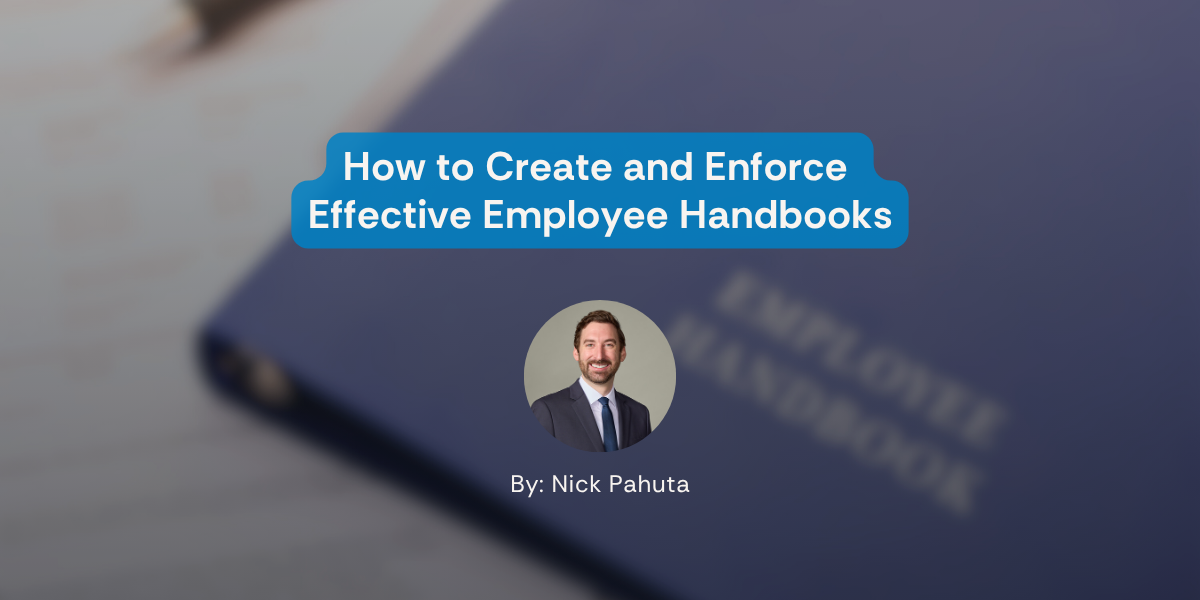The FTC and Non-Compete Agreements: The Ban and Where Things Stand Today

On April 23, 2024, the Federal Trade Commission (“FTC”) voted to ban for-profit employers from making employees sign agreements with post-employment non-compete clauses. The FTC’s decision was the result of a 3-to-2 vote among its five commissioners. The final rule as issued bans all new non-competes for all workers, regardless of industry or type of work. As for existing non-competes, non-competes under the rule will no longer enforceable for all workers, other than senior executives. Senior executives are defined as employees who make more than $151,164.00 annually and maintain a “policy-making position.”
There is also an exception for non-competes entered into in connection with the sale of a business, regardless of the ownership percentage, as well as for contracts between a franchisee/franchisor. The rule is set to take effect in 120 days from April 23. This does not apply to confidentiality or trade secret language or protections. As for non-solicitation agreements, they are not categorically prohibited by the FTC rule, but they cannot be used in a manner tantamount to serving as a non-compete based on the nature of the restrictions involved. A fact specific analysis would be required in each instance.
In justifying its decision, the FTC cited its authority under the Federal Trade Commission Act (“FTC Act”) to “prevent persons, partnerships, or corporations . . . from using unfair methods of competition in or affecting commerce.” 15 U.S.C. 45(a)(2). The Commission found that non-competes tend to negatively affect competitive conditions in labor markets, and therefore a violation of Section 5 of the FTC Act. The two commissioners who dissented from the majority have said they believe the rule to be “unlawful” and that it “won’t survive legal challenges.” Legal challenges have already begun to be filed in federal courts across the country, with more expected in the coming weeks.
Most notably, the FTC rule has already been challenged in the Northern District of Texas, where arguments were raised alleging that the FTC lacks authority to enact such a rule, and that this is a legislative action that the United States Congress cannot delegate to the FTC.
There will be other lawsuits, and there may well be an injunction staying the implementation of the FTC’s non-compete rule. Much more will develop quickly on this front that is rapidly evolving. Businesses and individuals both will need to monitor these changes, both with respect to disputes and proactive use of proper restrictions in employment agreements and other documents in which restrictive covenants are utilized.
The team at Strauss Troy is closely monitoring these developments, in both and litigation and corporate context, as they continue to develop.
Please contact one of our team members with any questions or concerns you may have.
Stephen S. Schmidt: ssschmidt@strausstroy.com or 513.629.9422
Andrew D. White: adwhite@strausstroy.com or 513.629.9466
Stephen S. Schmidt serves as co-chairman of Strauss Troy’s Litigation Department. He is a business litigator who represents and advises clients across a variety of industries in both commercial and consumer disputes, including partnership disputes, non-compete, trade secret, insurance coverage, and employment disputes.
Andrew D. White is a member of Strauss Troy’s Litigation Department. Andrew focuses his practice in various areas of civil litigation, including general commercial and business litigation, construction litigation, and municipal and local government law.

.png)
.png)
